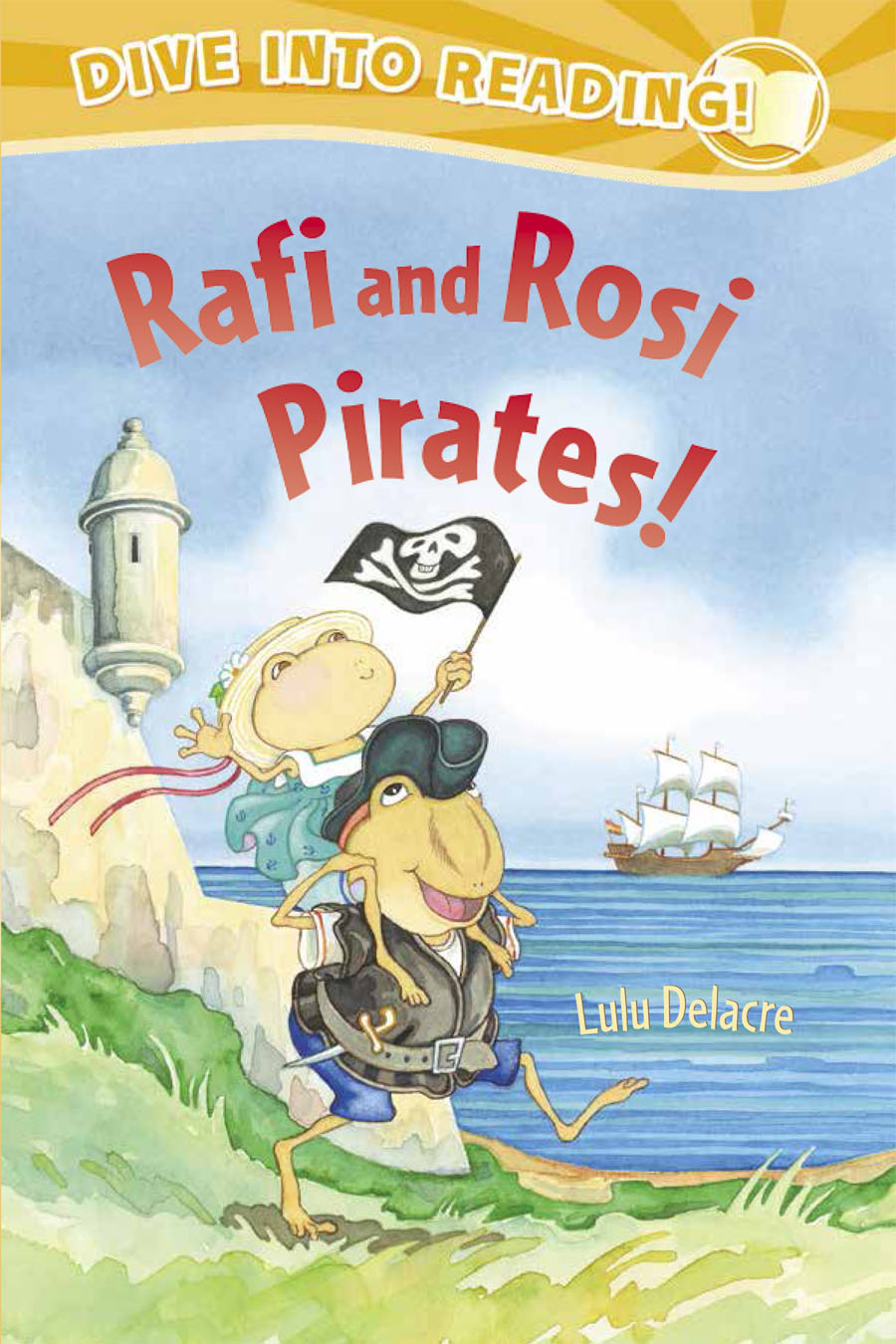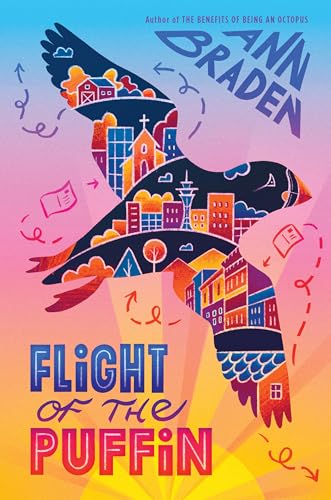Rafi and Rosi Pirates! By Lulu Delacre
This book for beginning readers contains three stories of the adventures of two young frogs who live in the Caribbean, specifically the island of enchantment, Puerto Rico. This is the third instalment in the Rafi and Rosi books by distinguished Puerto Rican author Lulu Delacre (a three-time Pura Belpre award honoree). On her website Delacre states that she believes in authoring books that empower Latino children by giving them a sense of pride in themselves and in their culture. This book holds true to that as it playfully exposes readers to two young, playful frogs whose adventures occur in a culturally authentic setting. Older brother Rafi and his sister Rosi get into all sorts of adventures but learn valuable lessons about themselves, their history and culture along the way.
The book contains a glossary of terms in the front which I think some parents and caregivers will find very helpful as they translate the expressions used and . I especially liked the Did You Know section towards the back of the book which is a treasure trove of information that parents and caregivers can choose to share with young readers. The facts in this section can also be used as a jumping off point for classroom discussion, social studies units or even library craft programs for Hispanic Heritage Month and the like.
Rafi and Rosi are frogs, specifically coqui frogs, the coqui being a small frog that is native to Puerto Rico and though small, its distinctive cry can be heard throughout the island around dusk. For Puerto Ricans the sound of the coqui is iconic and one of the things Puerto Ricans miss most about life away from the island. Rafi and Rosi are very apt representations of coquies as their cries can be heard all over San Juan.
One of the must see sights when one visits the island of Puerto Rico is Castillo San Felipe del Morro, also known as El Morro El Morro is the backdrop for the three stories in this book and in real life is one of the three largest and oldest forts in the Caribbean and has been designated a World Heritage Site by Unesco and such is very well preserved. When one visits the fort, the tour guides do a fantastic job of bringing the fort and the role it played in Puerto Rico’s history to life. The author does a wonderful job of using the lore and history of the fort to create a playground where young children’s imaginations come to life.
Delacre includes historical figures such as Cofresi (Roberto Cofresí, a famous Puerto Rican pirate, who was very much a Robin Hood type figure on the island during the period of Spanish colonial rule and for whom various caves, beaches and other hideouts have been named in Puerto Rico). I for one, found the small detail about Cofresí intriguing and this motivated me to search for more information on this pirate.
Some Puerto Ricans use what is known in linguistics as a “code-switch” i.e. alternating between two or more languages (Puerto Rico has been a colony of the United States since 1898 and Puerto Ricans US citizens since 1917) and Delacre uses some of that in this book as well. Overall, the Spanish used is accurate and is comprised of simple vocabulary that would be easily accessible to a young reader. In the text, Delacre uses word sandwiches to ensure that meaning is understood, e.g. “Sí,” said Rafi, “Yes.”
Many books in the current book market are written from by Mexican American or Chicano authors, which is understandable since this group is one of the largest ethnicities in the United States, and thus feature cultural elements germane to that culture. Puerto Ricans however regularly migrate to the mainland United States and are a vibrant and important part of the community. Rafi and Rosi, for me represent a welcome addition to the canon of books written for young readers who may be of Puerto Rican descent. This is not to say that the book will be foreign to children that aren’t Puerto Rican, I think that the opposite holds true- young readers of many cultures will enjoy the wonderful adventures related here and will want to learn more. Delacre, in presenting Puerto Rico through the eyes of two young, funny, charming frogs has helped give the island some very positive exposure.
In summary, this book would be a wonderful addition to a classroom library, public library or personal collection. It is well written, accessible and perhaps most importantly, culturally authentic. The previous books in the series are Rafi and Rosi and Rafi and Rosi Carnival! This book is recommended for readers in grades 1 to 3 and some read alikes would be See Fred Run by Kevin Bolger, That’s My Book! And other Stories by Salina Yoon and What is Chasing Duck by Jan Thomas. The book is also available in a Spanish edition, Rafi y Rosi ¡Piratas! which would be a great read for heritage speakers of Spanish as well as children enrolled in bilingual programs and so forth.
This review can also be seen on Anansesem's website
Also click here for some then and now pics showing Puerto Rico and how the island is coping.
 It is summer once again and whether your library is doing a summer reading program, a summer learning program or anything in between if you spend any time at the reference desk you will be asked to recommend a book (or two, or three or ten).
It is summer once again and whether your library is doing a summer reading program, a summer learning program or anything in between if you spend any time at the reference desk you will be asked to recommend a book (or two, or three or ten).


